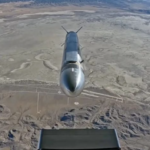By Marina Malenic The Army is awaiting a go-ahead from Pentagon leaders to divide its multibillion dollar modernization effort, the Future Combat Systems (FCS), into three separate programs, a top service official said yesterday. "The large, major defense acquisition program that was heretofore known as FCS will probably devolve into three major programs," Lt. Gen. Ross Thompson, the military deputy to the Army's acquisition secretary, told the House Armed Services Air and Land Forces subcommittee. According to Thompson, the three…
Recommended
Trending
Congress Updates
Wicker Wants Legislation On DoD’s Equity Investments In Minerals Supply Chain
Legislation regarding equity investments by the Defense Department in critical mineral supply chains is needed to strengthen the larger defense industrial base and demonstrate to the “free market” that the […]
“Not Sure How They Get To Where They Wanna Be,” Calvert Says of $1.5 Trillion Defense Topline Proposal
As the federal government enters a third week of tardiness in a fiscal 2027 budget release, a big question is how the Pentagon will be able to spend $500 billion […]
Path Uncertain For $1.5 Trillion FY ‘27 Defense Topline After Trump Casts Doubt On Second Reconciliation Bill
The path to achieve the White House’s call for a $1.5 trillion defense topline in 2027 appears murkier now after President Donald Trump has cast doubt on the prospects of […]
Senate Budget Dems Push For Defense Reconciliation Spending Details, Cite ‘Slush Fund’ Concerns
Democrats on the Senate Budget Committee have raised “significant concern” with the Pentagon’s move to classify reconciliation spending plans, urging the department to provide more public details on how the […]
Job Feed
-
Faculty, Bachelor of Applied Science in Early Childhood Education and Teaching
Lone Star College - , TX -
Intern, R&D Undergraduate Year Round
Photonic & Phononic Microsystems, Hybrid - Sandia National Laboratories - Albuquerque, NM -
Senior/ Principal Electrical Engineer, Flight Test
Onsite - Sandia National Laboratories - Albuquerque, NM -
Product Technician
Trench Safety - Sunbelt Rentals - REMOTE, FL










